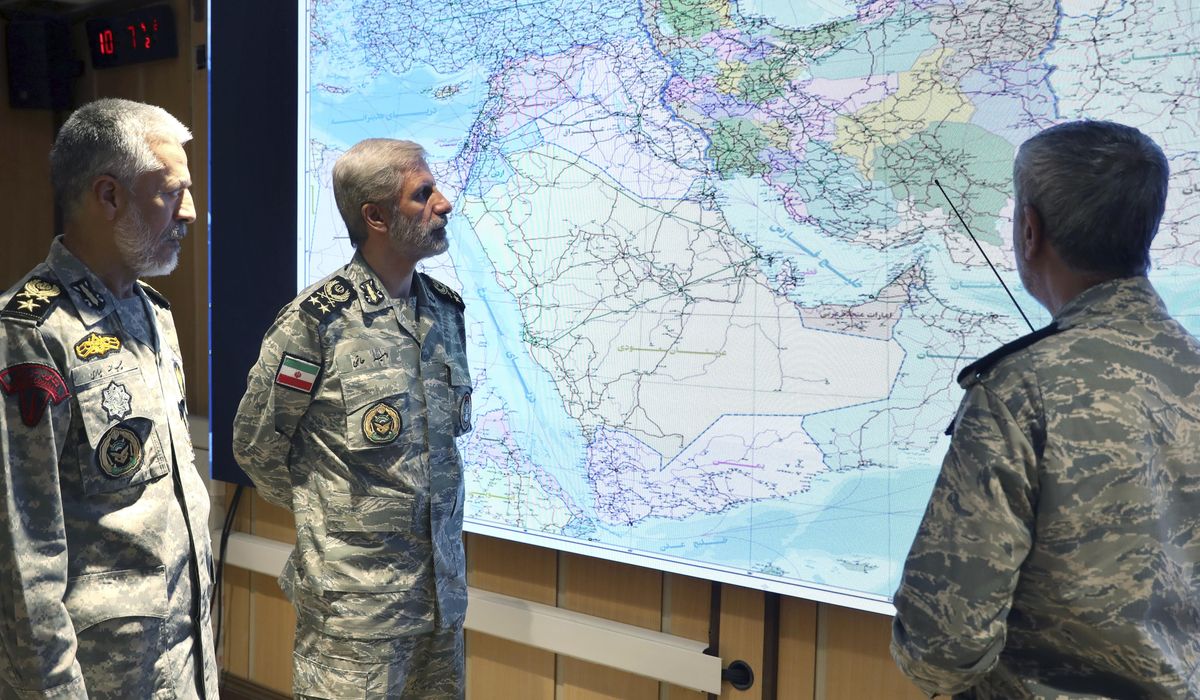


Iran has executed three men it accused of collaborating with Israel’s spy agency to smuggle in equipment for an assassination.
According to Iran’s state-affiliated media outlet Tasnim, the three were hanged on Wednesday after being convicted of cooperating with Mossad. Iranian authorities said the men were in contact with Israel’s spy agency through “one of the neighboring countries” and worked with Israelis to bring the assassination gear into Iran.
The men allegedly smuggled the equipment in a shipment of alcohol that was “used in an assassination of a public figure.”
Hengaw, a human rights group in Kurdistan, said all three men were Kurdish political prisoners.
The executions were part of an internal crackdown by Iranian authorities aiming to establish stability after the 12-day war with Israel.
According to Iran’s Fars News Agency, authorities there have arrested more than 700 people in the past 12 days who are accused of being connected to Mossad. Authorities have also reportedly seized several Israeli drones.
“Since the beginning of Israel’s attack on Iran, the Zionist regime’s spy network has been highly active in the country; Iranian intelligence and security forces managed to arrest more than 700 of them within 12 days,” the report reads.
Israeli infiltration in Iranian security spaces seems to have been extensive. Shortly after Israel launched what it called a preemptive attack on Iran, Israeli intelligence officials said their efforts had destroyed Iran’s air defenses.
According to interviews conducted by The Associated Press after the attack, Israeli intelligence was able to smuggle drones and missile-launching devices into Iran and use data collected by operatives to determine vulnerable targets.
Meanwhile, Iranian citizens are experiencing a massive internet blackout, which has cut those opposed to the regime off from the rest of the world. Iranian authorities assert that the blackout is meant to limit the risk of an Israeli cyberattack, but activists argue its real purpose is to limit coordination between the regime’s critics.
Indeed, Iranian officials are reportedly worried about domestic turmoil. The Islamic Revolutionary Guard Corps has increased its presence on the street, conducted mass arrests and set up security checkpoints around the country.
Iranian authorities are reportedly focusing their attention on Kurdish minorities in the northwestern borders of the nation. Kurdish separatists and opposition groups have long opposed the current Shiite government in Tehran and have faced the full force of the Revolutionary Guard.
Iran dispatched Revolutionary Guard detachments to its borders with Azerbaijan, Iraq and Pakistan shortly after Israel began bombing on June 13.
Several Kurdish factions have reported Iranian authorities detaining and arresting their members in the aftermath of the attack.
• Vaughn Cockayne can be reached at vcockayne@washingtontimes.com.
